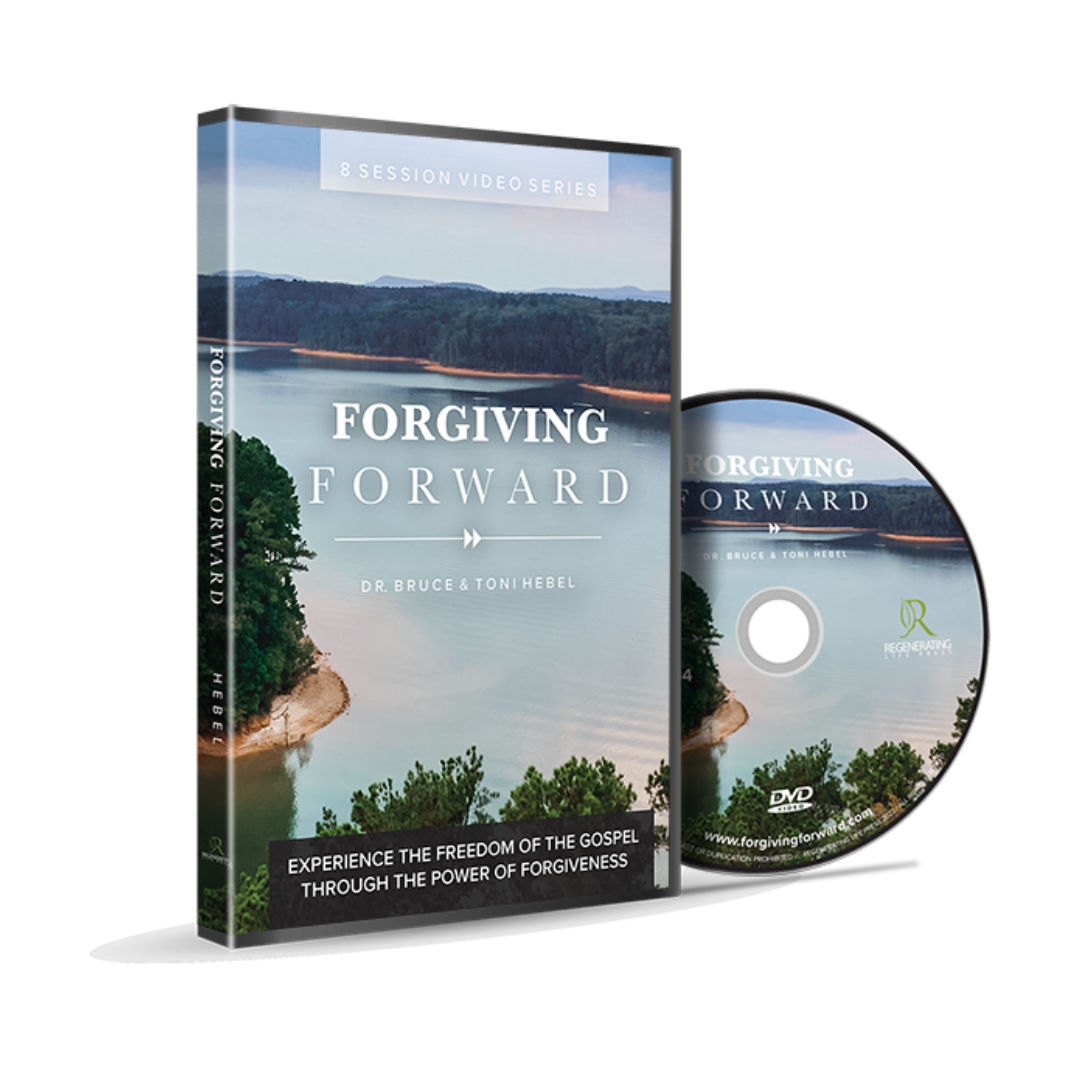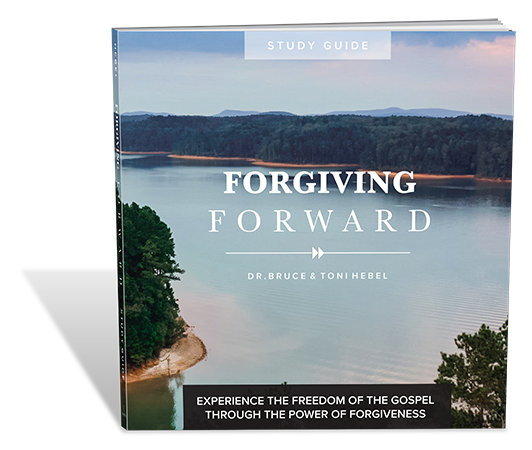FORGIVENESS AND FAITH
Joseph’s Story
One of the most well-known examples of forgiveness in Scripture is found in Genesis 37-50. It’s the story of Joseph and his brothers. Jacob had 12 sons. Joseph was the second to the youngest—Dad’s favorite. We know this because Jacob had given him a special coat, signifying the favoritism. Evidently, Joseph was also one of God’s favorites. We know this because God gave Joseph two dreams, and in both of the dreams, Joseph’s brothers bowed down to him. Joseph made the mistake of telling his brothers about the dreams. The brothers responded by throwing Joseph in a pit and then selling him to a band of Ishmaelites on their way to Egypt. The Ishmaelites were the descendants of his estranged great-uncle, Ishmael, which means they sold Joseph to a band of angry cousins. The brothers took Joseph’s special coat, poured blood all over it, and showed it to Jacob, leading their father to believe his favorite son was dead.
The cousins eventually sold Joseph to a high-ranking official in the Egyptian army named Potiphar. Joseph quickly became Potiphar’s favorite, who made Joseph the house manager of his estate. He oversaw everything that Potiphar owned, and all the other servants reported to him. Unfortunately, he became Mrs. P.'s favorite too. We know because she tried to seduce him. Several times! He resisted. Several times! She grabbed him. He ran away. She cried, “Rape!” He was arrested and thrown in the royal prison.
Joseph quickly became the jailor's favorite, who put him in charge of everything. Joseph later interpreted dreams for a couple of prisoners, both of which came true. One was executed, and the other was restored to his position as Cup Bearer to Pharaoh. Later, Pharaoh had a couple of dreams that no one could interpret. Informed by the Cup Bearer about Joseph’s ability to interpret dreams, Pharaoh summoned Joseph, who then interpreted the dreams. The dreams predicted that there would be seven years of bumper crops followed by seven years of no crops. Pharaoh was to save all of the extra grain from the seven good years so they would have plenty in the seven lean years. Egypt could then sell their excess grain to the rest of the world when they ran out of food and make a lot of money. Pharaoh was so impressed that he elevated Joseph to the position of prime minister of Egypt, the number two man in the entire nation. Joseph suddenly became the second most powerful man in the world. God took Joseph from being sold into slavery to being the man in charge of the world’s food supply. Pretty amazing!
Everything happened as Joseph predicted. During the famine years, Egypt had plenty while the rest of the world ran out of food. Guess who got hungry? Big brothers. Dad sent big brothers to Egypt to buy food. Guess who they had to buy the food from? Little brother. But they didn’t recognize him. How could they? I mean, come on, if you put your little brother in a pit and sell him as a slave, you don’t expect him to control the world’s food supply in a few years. I can imagine Rueben saying to Levi when he saw Joseph, “Is that Joseph?” with Levi replying, “Nah, couldn’t be. Everyone has a twin.” You see, that’s not what usually happens when you sell your little brother to angry cousins. That is, unless God intervenes.
Joseph eventually revealed himself to his big brothers and provided them with all the food they needed. At Pharaoh’s insistence, Joseph brought his Dad and his entire family to Egypt and placed them in the land of Goshen, which was the best land in all of Egypt. There was plenty of room for the entire family and all their herds and flocks. Joseph blessed his family with everything they needed and more.
Eventually, Jacob died, and the brothers were filled with fear. With Dad gone, they were afraid that Joseph would finally enact vengeance upon them (think Michael Corleone at the end of Godfather I.) They jumped to conclusions and assumed they were in big trouble. Who wouldn’t think that?
So they sent a message to Joseph, saying, “Your father charged before he died, saying, ‘Thus you shall say to Joseph, ‘Please forgive, I beg you, the transgression of your brothers and their sin, for they did you wrong. And now, please forgive the transgression of the servants of the God of your father’.” And Joseph wept when they spoke to him. Then his brothers also came and fell down before him and said, “Behold, we are your servants.” (Genesis 50:16-18)
Did you notice what happened? The brothers came in Dad’s name and admitted that what they did to him so many years before was wrong. That sounds like repentance, doesn’t it? Joseph’s reaction was emotional. He wept. Why? When you have forgiven, and you’ve waited years for them to repent, there will be an emotional release. Plus, when you realize that they are afraid of you, it will break your heart.
Joseph’s response to their repentance displays an incredible insight that is key to learning how to forgive. “But Joseph said to them, ‘Do not be afraid, for am I in God’s place?’” (Genesis 50:19) You see, Joseph knew that, technically speaking, people don’t sin against us, they sin against God. They wound us with their sin, but their sin is really against God. David understood this as well. Psalm 51 is David’s prayer of confession after he was confronted by Nathan about his affair with Bathsheba and having her husband murdered. David said, “Against You, You only, have I sinned and done what is evil in Your sight….” (Psalm 51:4) I can imagine that when that prayer got to heaven, there was a guy over in the corner of the throne room named Uriah who raised his hand and said, “Hello, hello…he took my wife and my life. Don’t you think he sinned against me, maybe just a little?” But evidently, God said, “No.” I say this because of all the Psalms David wrote, and he wrote hundreds, this was one of his Psalms that God codified forever for us in Holy Scripture. People don’t sin against us; they sin against God, but they wound us with their sin.
Joseph went on to say, “You meant evil against me.” Notice what Joseph didn’t say, “It’s OK big brothers. It’s no big deal. It doesn’t matter.” It wasn’t OK. In no context is it ever OK to sell your brother to angry cousins. Forgiveness does not devalue the wound or the damage caused. On the contrary, forgiveness acknowledges the pain and the wrongness of what happened. Forgiveness means we simply choose to trust God in it. Joseph continued, “You meant evil against me, but God meant it for good in order to bring about this present result, to preserve many people alive. So therefore, do not be afraid; I will provide for you and your little ones.” So he comforted them and spoke kindly to them. (Genesis 50:20-21)
So, the big question for us is this. Could God have used Joseph to deliver the nation of Israel from the famine had his brothers not sold him into slavery? Yes! How do we know? Because the promise predated the sin and God never predicates His promises on the sin of man. But what He often does is take the sins people commit, and He manipulates them to where it looks like He may have planned it that way all along. God doesn’t fight Satan—He uses him. He permits what He could prevent in order to bring about His greater glory and our greater good. He also prevents what He could permit for the same reason. But sometimes, what He permits or doesn’t prevent wounds us. But faith says, “I trust God anyway.”
The foundational rock that our forgiveness rests on is faith. It's understanding that in the sovereignty of God, God takes the worst things that happen to us and uses them for His glory and our good. Toni and I would have never chosen to go through the pain of the betrayals, slander, and abandonment we’ve endured. However, we have witnessed and experienced the amazing redemptive power of God over and over again through the darkest periods of our lives. Not only that, we have seen how God has used the pain we endured to change lives around the world through the message He taught us through them. That’s why we can say with confidence that while God doesn’t cause everything, He does redeem everything by causing all to work together for His glory and our good. Focusing on God reminds us to embrace the blessings in the pain rather than reacting in retaliation. Faith is the bedrock that our forgiveness rests upon.
(Adapted from Forgiving Forward Second Edition Chapter 7)



